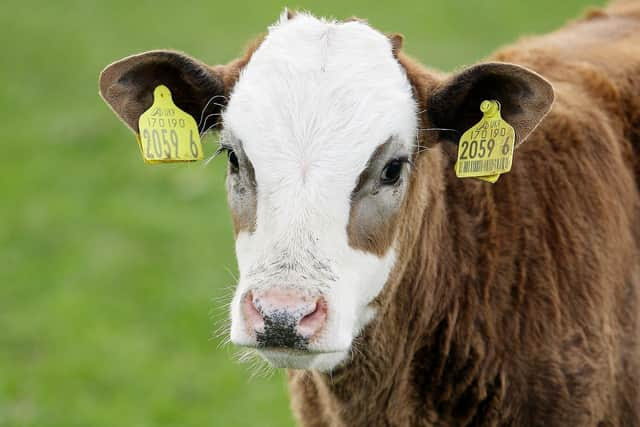UFU committed to moving cattle and sheep sectors forward
and live on Freeview channel 276
For Northern Ireland’s (NI) cattle and sheep sectors, the pace of change is constant and constrained by the uncertainty that faces NI agriculture.
Farmers are good at evolving as time has shown, but farmers need the right support to evolve better and faster in the future. Change is also inevitable and something that the farming community cannot ignore. Going forward, there will be a huge shift to action-based measures to bring about complementary productivity gains and delivering tangible environmental and biodiversity benefits. NI agriculture currently faces an array of physical, financial, and political challenges. Future support, Brexit and issues around trade, future planning, cost of production inflation, climate change legislation and bovine TB to name but a few.
Advertisement
Advertisement
It is critical that all our politicians in NI and Westminster understand the contribution that the cattle and sheep sectors make to the economy and particularly in rural areas as it provides a range of public goods relating to the environment, biodiversity and landscape preservation in addition to high quality food production. It is critical that the government deploys the right support to both the cattle and sheep sectors to ensure they can be sustainably productive in the long-term.


The Republic of Ireland has agreed to reducing its agricultural emissions by 25 percent by 2030. NI will now be looking at developing Climate Action Plans and sectoral plans with the first five year plan to be developed by the end of 2023, with pressure on the agricultural industry to deliver its fair share towards the net zero by 2050 target and methane contributions within the NI Climate Change Act. This will be very challenging.
NI has a strong dominance of grass production so there is a strong argument to retain livestock here to meet the demands of the domestic UK population. Any further decline in livestock production will result in further demands for imports and this could undermine the UK’s efforts to reduce greenhouse gas emissions globally, as measurements of emissions of imported products are not considered within the national inventory. A key conclusion from the UK Committee on climate change is that “agriculture emissions should not be offshored. Achieving emissions reduction should not be at the expense of producing less food in the UK and increasing imports. As the UK is a relatively low-greenhouse gas producer of ruminant meat, this risks exporting emissions abroad and increasing consumption emissions.” Some people also think that the UK food strategy should include a major shift away from animal-sourced products, however, such conclusions are not supported fully by evidence on the health impact of red meat.
Going forward, we need to see governments take more heed of the research on greenhouse gases, in particular regarding methane. Methane is a short-lived gas meaning that pasture-based systems contribute very little new warming effect when cattle numbers remain constant. GWP100 is the international formula that’s currently used for the counting of greenhouse gas emissions. However, some scientists have proposed a model called GWP* that takes a more accurate account of the breakdown of methane emissions. For some time, agricultural organisations from across Europe, UK and New Zealand including the UFU, have been calling for the Intergovernmental Panel on Climate Change (IPCC) to consider short lived pollutants like methane and recognise this aspect within the international emissions inventory.
Advertisement
Advertisement
UFU representatives have been involved in various workstreams to help take our agriculture industry forward sustainably and profitably. This includes future agriculture support, ruminant genetics programme, soil nutrient health scheme, bovine TB, sheep scab programme, inputs and Ukraine taskforce, NI sustainability body, whole farm carbon auditing and grass-fed beef PGI through the Livestock and Meat Commission and the Farm Quality Assurance Scheme.
UFU representative will be attending the National Ploughing Championships next week in Ratheniska Co. Laois and will be meeting with industry, processors and stakeholders.